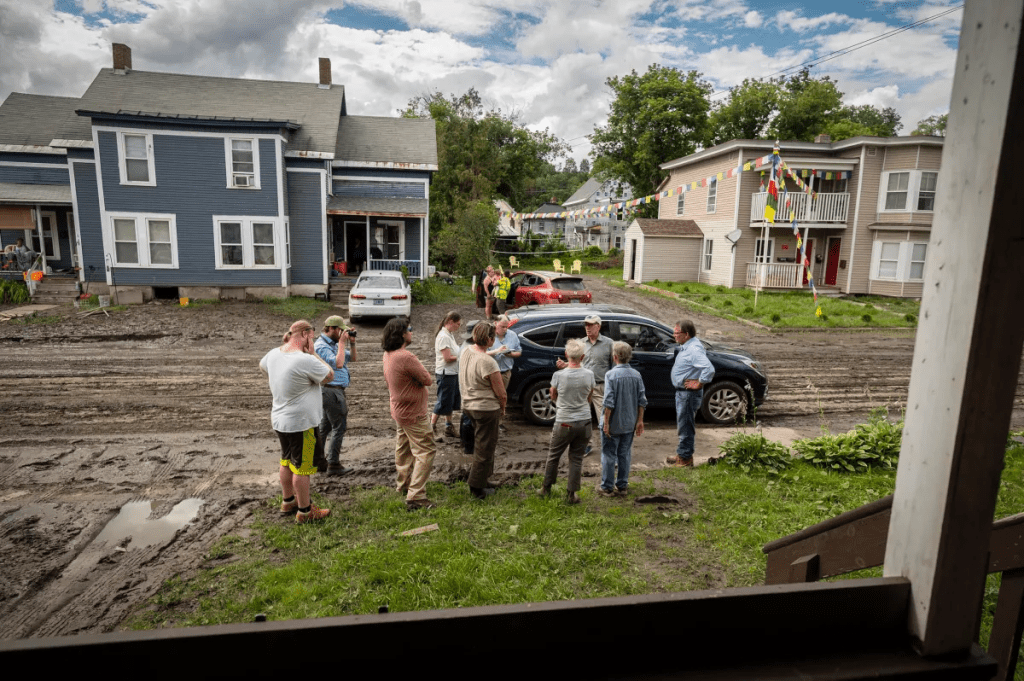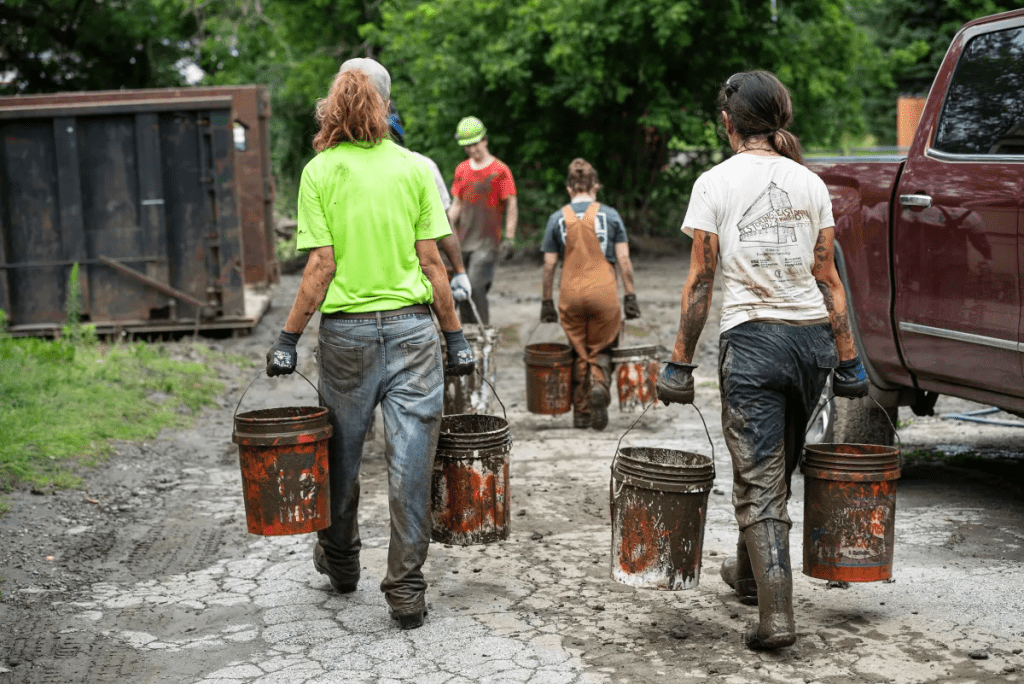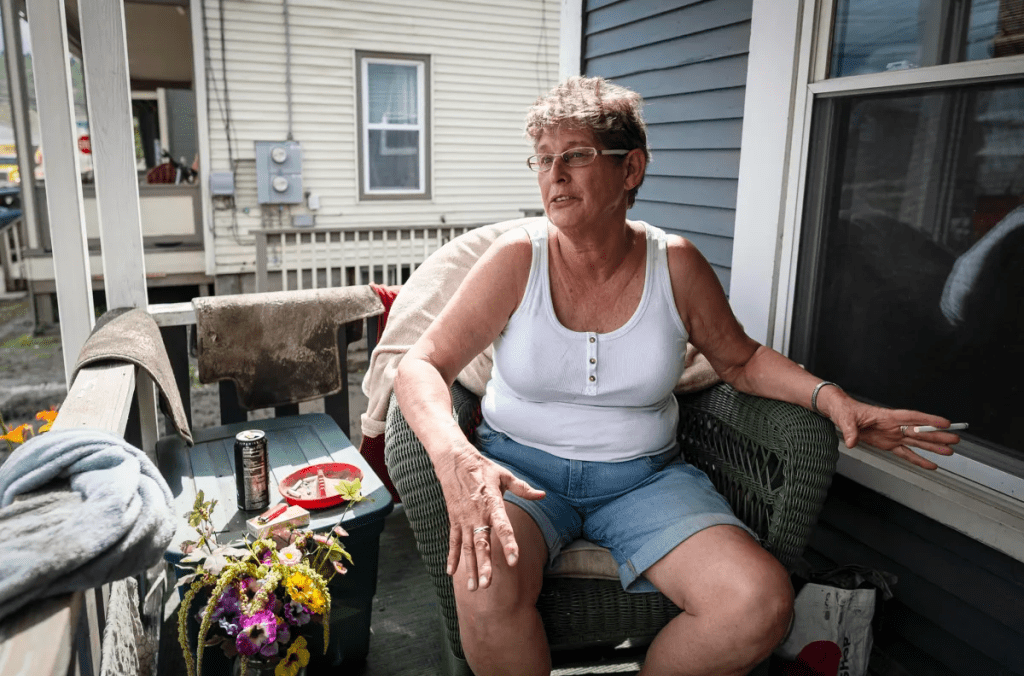“I can’t believe we’re here again,” the senator told city officials as he stood on a muddy sidewalk along Second Street, which was devastated by flooding last year and flooded again this week.

Photo by Glenn Russell/VTDigger
BARRE CITY – Jatinder Singh told U.S. Sen. Peter Welch, D-Vt., on Friday that for the second year in a row — to the exact day — the building where he lives on Second Street was heavily damaged by flooding.
“Every year, the same thing,” Singh said. “We are getting scared to live here.”
Singh said the cost to fix the building last year approached $100,000. He didn’t know yet how much it would take to make this latest round of repairs, but unlike last year, he said, there won’t be flood insurance to help defray the expenses.
Welch had gone to Second Street late Friday afternoon to assess the damage inflicted by the latest flooding to hit Barre City. He stood on the sidewalk and spoke with a contingent of city officials, including Mayor Thom Lauzon, for about an hour.
A couple of residents, including Singh, walked over from their nearby flooded homes to join the conversation.
Squishy mud from the downpours that drenched the city Wednesday night into Thursday morning still filled a large section of the street and driveways leading to many of the homes, most of which are multi-unit apartment buildings.
This July flood wasn’t as widespread or as severe as the one that ravaged the community last year — but it hit many of the same areas of the city.

Photo by Glenn Russell/VTDigger
“I can’t believe we’re here again,” Welch told Lauzon and the other Barre City officials after he got out of his vehicle and stepped carefully over the muddy roadway and onto the sidewalk where the mud wasn’t quite so deep. “This is really depressing.”
City Councilor Samn Stockwell, whose district includes Second Street, was among the group asking Welch about what changes could help communities like Barre City not only better respond to flooding but pay for measures to prevent it from happening in the first place.
Some city officials also talked of the need for the federal government to get money to local governments as well as impacted residents quicker and more efficiently following disasters.
Welch spoke of the need to increase the “flexibility” in how the Federal Emergency Management Agency responds to such disasters.
He said he thought it was important for local leaders to have a greater say and responsibility in deciding how the federal disaster funds are distributed since they know their communities better than out-of-state federal officials.
The key, the senator said, was to ensure accountability over the funding to protect against waste and fraud while at the same time ensuring that money goes where needed in a timely fashion.

Photo by Glenn Russell/VTDigger
“I really want to make it easier,” Welch said. He said he was optimistic about the prospects of such reforms because disasters can strike anywhere regardless of the political leanings of those in power in any particular state.
Before Welch arrived, Nancy Parsons sat on the porch of her Second Street residence looking out at the thick mud that filled the front walkway.
She recalled the fear she felt Wednesday night as the rising waters rushed down the street, prompting her to move from the first floor of her apartment to the second level. She said she took valuable possessions with her up the stairs as well as food and water.
“It didn’t seem real,” she said of the flooding. “It was very scary.”
Parsons, who moved into the apartment last month seeking an affordable place to live, said she had just planted daisies along the walk leading to the building. All that was visible in that spot Friday was dark muck.
“Maybe I’ll try again next year,” she said.
Story Written by Alan J. Keays, VTDigger
